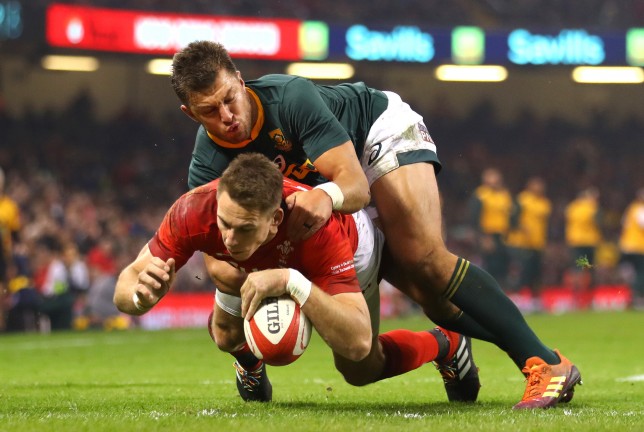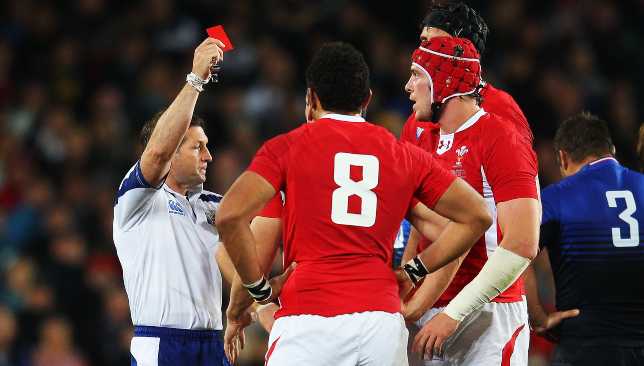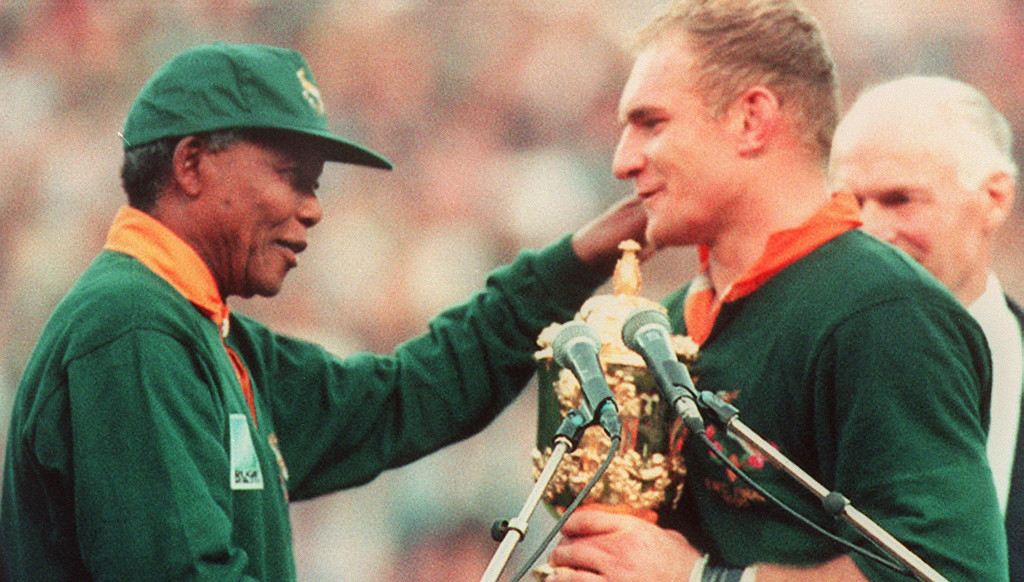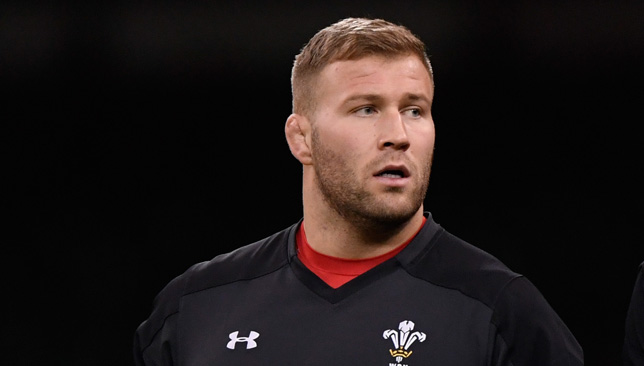
Wales and South Africa clash in Yokohama on Sunday with a Rugby World Cup final berth against England at stake for the winner.
The Springboks have won each of the two finals they have appeared in, winning on home soil in 1995 for a maiden Webb Ellis Cup, and beating England in 2007 for their second.
Wales are battling to make their first-ever final, having lost on both previous occasions they made it this far – in 1987 and 2011.
We look ahead to the north v south showdown.
HISTORY BECKONS FOR BOYOS

Sam Warburton is sent off in the 2011 Rugby World Cup semi-final between Wales and France.
As neighbours England go in search of a second Webb Ellis Cup win from their fourth final following their victory over record three-time champions New Zealand on Saturday, opponents South Africa will try to reach their third showpiece and win a third crown.
Wales, meanwhile, are relative novices. Never before have they graced international rugby’s hallowed stage. They are playing in only their third-ever World Cup semi-final, in nine tournament appearances.
The other three semi-finalists have 18 trips to the last four between them, and 10 to the final.
Welsh fans may have thought the standard was being set back at the inaugural World Cup in 1987 – then they finished third, their best-ever achievement. They beat England in the quarter-finals before being outplayed by eventual champions New Zealand, but bounced back to topple Australia in the third-place play-off.
Sadly, they failed to get out of the pool at the next two tournaments and 24 years passed before they saw the semis again.
And some of the current squad might well be scarred by their harrowing 2011 exit, Wales’ 14 men playing for 61 minutes without captain Sam Warburton after his controversial dismissal, compounded by the fact they should have beat the French but lost 9-8.
Alun Wyn Jones, Jonathan Davies, George North and Leigh Halfpenny were all part of that pain and it will surely be in their thinking in Yokohama.
But while there will surely be a few butterflies fluttering around in Welsh tummies, theirs are cast-iron stomachs these days, made of much sterner stuff.
They have rarely thrilled in 12 years under Warren Gatland rule, but they are built as sturdy as a ship, made to withstand and erode rather than blitz or blow away.
It is now time to sink or swim.
HORRIBLE HISTORIES

Francois Pienaar receives the 1995 World Cup from Nelson Mandela.
Speaking of history, it is on the side of the Springboks, heavily in terms of this fixture, and in more ways than one. Bar their two World Cup triumphs, in 1995 and 2007, the Boks eliminated Wales from the 2015 tournament, picking them off in the quarter-finals.
The scoreline may have been tight but the 23-19 result did not tell the full story of South Africa’s dominance, Wales still counting the cost from their 28-25 pool win over England.
History does not tell a kind story for Wales in terms of results against the southern hemisphere teams in general – they went nearly a century before they won against South Africa for the first time, in 1999.
After the countries first met in 1906, the tourists triumphing 11-0 in Swansea, Wales had to wait 93 years and 12 games before getting their first win, at the Millennium Stadium. Sixteen more defeats followed before win No2 in 2014.
These are two of just six victories in 25 attempts, as well as a draw, with the Boks outscoring Wales by 922 to 552 points in that run. And, of the four games played at neutral venues, South Africa have won three.
Then again, Wales are certainly on a roll of their own recently. Of their six wins, four have come successively since that 2015 quarter-final exit.
They gained a semblance of revenge for the World Cup defeat with a relative stroll in the 2016 autumn internationals, winning 27-13, with last year’s 20-11 triumph in the same end-of-year fixtures also fairly sizeable. In-between there were nail-biting 24-22 and 22-20 triumphs in 2017 and 2018.
So, having gone 12 games and 93 years before earning their maiden win against the South Africans, and then 16 more fixtures and 15 years before exorcising more recent ghosts, Wales will not fear Sunday’s opponents, no matter how gigantic they, or history, may be.
WALES’ FAMILY AFFAIR

Ross Moriarty replaces Josh Navidi.
There’ll be a familiar name on a Welsh World Cup semi-final teamsheet come Sunday when Ross Moriarty lines up at No8 against the Springboks.
The 25-year-old finally gets to start a meaningful game after Josh Navidi, Justin Tipuric and Aaron Wainwright were the back row triumvirate chosen for both the pivotal pool game against Australia and the quarter-final with France.
The game comes 32 years after Wales’ first last four appearance, in 1987. In the starting XV against the All Blacks that June 14 day were, not one, but two Moriarty’s – Ross’ dad Paul played at blindside flanker while uncle Richard was at lock.
It was a chastening day for the family. Wales were thrashed 49-6 by the champions elect, the sending off of captain Richard’s lock partner Huw Richards not helping matters.
Discipline will be key again at Stadium Yokohama come Sunday, something Moriarty is yet to master. He was sin-binned a minute after replacing Navidi against the French – before then scoring the crucial try that saw Wales edge into the semis.
Navidi’s injury was tournament-ending, allowing for Moriarty’s conversion to the starting team. Moriarty is a powderkeg player, a hulking figure who at 6’ 2” and 106kg will relish launching himself into tackles and at the breakdown, of what is surely going to be a titanic encounter.
His power running and superb ball carrying skills will be crucial. So too his temperament.
*Head down to McGettigan’s JLT this weekend to watch the Rugby World Cup semi-finals and soak up the atmosphere.